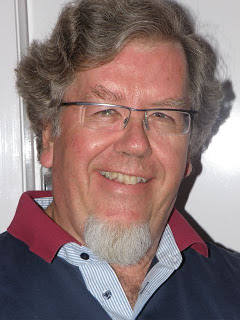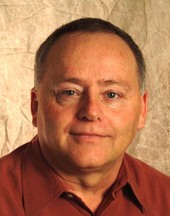
Meditation is a practice in which an individual uses a technique – such as mindfulness, or focusing the mind on a particular object, thought, or activity – to train attention and awareness, and achieve a mentally clear and emotionally calm and stable state.

Transcendental Meditation (TM) is a form of silent meditation developed by Maharishi Mahesh Yogi and so named to separate it from Hinduism or any other religious practice. The TM technique involves the silent repetition of a mantra or sound, and is practiced for 15–20 minutes twice per day. It is taught by certified teachers through a standard course of instruction, which costs a fee that varies by country. According to the Transcendental Meditation movement, it is a non-religious method that promotes relaxed awareness, stress relief, self-development, and higher states of consciousness. The technique has been variously described as both religious and non-religious.

Daniel Goleman is an American psychologist, author, and science journalist. For twelve years, he wrote for The New York Times, reporting on the brain and behavioral sciences. His 1995 book Emotional Intelligence was on The New York Times Best Seller list for a year and a half, a bestseller in many countries, and is in print worldwide in 40 languages. Apart from his books on emotional intelligence, Goleman has written books on topics including self-deception, creativity, transparency, meditation, social and emotional learning, ecoliteracy and the ecological crisis, and the Dalai Lama's vision for the future.
Introspection is the examination of one's own conscious thoughts and feelings. In psychology, the process of introspection relies on the observation of one's mental state, while in a spiritual context it may refer to the examination of one's soul. Introspection is closely related to human self-reflection and self-discovery and is contrasted with external observation.

Michio Kaku is an American physicist, science communicator, futurologist, and writer of popular-science. He is a professor of theoretical physics at the City College of New York and the CUNY Graduate Center. Kaku is the author of several books about physics and related topics and has made frequent appearances on radio, television, and film. He is also a regular contributor to his own blog, as well as other popular media outlets. For his efforts to bridge science and science fiction, he is a 2021 Sir Arthur Clarke Lifetime Achievement Awardee.

Fidelity is the quality of faithfulness or loyalty. Its original meaning regarded duty in a broader sense than the related concept of fealty. Both derive from the Latin word fidēlis, meaning "faithful or loyal". In the City of London financial markets it has traditionally been used in the sense encompassed in the motto "my word is my bond".

Eknath Easwaran was an Indian-born spiritual teacher, author and translator and interpreter of Indian religious texts such as the Bhagavad Gita and the Upanishads.
Robert Allan Monroe was an American radio broadcasting executive who became known for his ideas about altered states of consciousness and for founding The Monroe Institute which continues to promote those ideas. His 1971 book Journeys Out of the Body is credited with popularizing the term "out-of-body experience".
The Hakomi Method is a form of mindfulness-centered somatic psychotherapy developed by Ron Kurtz in the 1970s.
Mindfulness is the cognitive skill, usually developed through meditation, of sustaining meta-attention of the contents of one's own mind in the present moment. Mindfulness derives from sati, a significant element of Hindu and Buddhist traditions, and is based on Zen, Vipassanā, and Tibetan meditation techniques. Though definitions and techniques of mindfulness are wide-ranging, Buddhist traditions describe what constitutes mindfulness such as how past, present and future moments arise and cease as momentary sense impressions and mental phenomena. Individuals who have contributed to the popularity of mindfulness in the modern Western context include Thích Nhất Hạnh, Joseph Goldstein, Herbert Benson, Jon Kabat-Zinn, and Richard J. Davidson.

Satya Narayana Goenka was an Indian teacher of Vipassanā meditation. Born in Burma to an Indian business family, he moved to India in 1969 and started teaching meditation. His teaching emphasized that the Buddha's path to liberation was non-sectarian, universal, and scientific in character. He became an influential teacher and played an important role in establishing non-commercial Vipassana meditation centers globally. He was awarded the Padma Bhushan by the Government of India in 2012, an award given for distinguished service of high order.

Buddhism includes an analysis of human psychology, emotion, cognition, behavior and motivation along with therapeutic practices. Buddhist psychology is embedded within the greater Buddhist ethical and philosophical system, and its psychological terminology is colored by ethical overtones. Buddhist psychology has two therapeutic goals: the healthy and virtuous life of a householder and the ultimate goal of nirvana, the total cessation of dissatisfaction and suffering (dukkha).

Noah Levine is an American Buddhist teacher and author, son of Stephen Levine. As a counselor known for his philosophical alignment with Buddhism and punk ideology, he identifies his Buddhist beliefs and practices with both the Theravada and Mahayana traditions. He has written several books on Buddhism and Buddhist practice including Refuge Recovery: A Buddhist Path to Recovering from Addiction.

Nevill Drury was an English-born Australian editor and publisher, as well as the author of over 40 books on subjects ranging from shamanism and western magical traditions to art, music, and anthropology. His books have been published in 26 countries and in 19 languages.
Equanimity is a state of psychological stability and composure which is undisturbed by the experience of or exposure to emotions, pain, or other phenomena that may cause others to lose the balance of their mind. The virtue and value of equanimity is extolled and advocated by a number of major religions and ancient philosophies.

This is a list of writings published by Carl Jung. Many of Jung's most important works have been collected, translated, and published in a 20-volume set by Princeton University Press, entitled The Collected Works of C. G. Jung. Works here are arranged by original publication date if known.
The Transcendental Meditation technique is the technique associated with the practice of Transcendental Meditation developed by the Indian spiritual figure Maharishi Mahesh Yogi. The practice involves the use of a private mantra, and is practised for 20 minutes twice per day while sitting comfortably with one's eyes closed. TM instruction encourages students not to be alarmed by random thoughts which may arise, but to easily return to the mantra when one becomes aware of this.

Ernst Wilhelm Borchert, or just Wilhelm Borchert, was a German actor. He was also a voice actor for audio books and films.

Mindful Yoga or Mindfulness Yoga combines Buddhist-style mindfulness practice with yoga as exercise to provide a means of exercise that is also meditative and useful for reducing stress. Buddhism and Hinduism have since ancient times shared many aspects of philosophy and practice including mindfulness, understanding the suffering caused by an erroneous view of reality, and using concentrated and meditative states to address such suffering.













